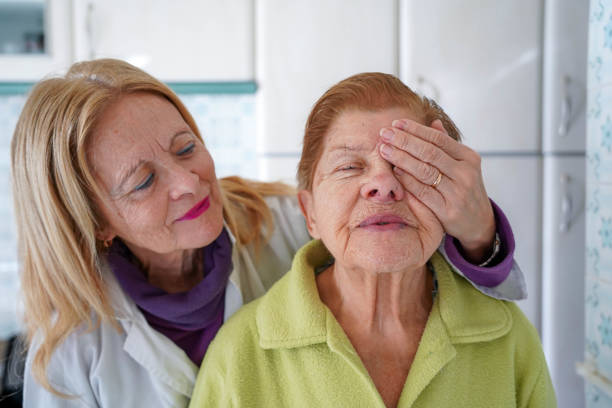

Homepage > Condition-Led Care > Sensory Impairments

Living with a sensory impairment whether visual, hearing, or dual-sensory loss can affect much more than communication. It can impact confidence, independence, mobility, and even emotional wellbeing. For many, daily life becomes filled with unseen barriers, and without the right support, it can lead to frustration, social isolation, and a loss of independence.
At Ola Prestige Care Services, we believe that every person deserves to feel fully included, respected, and empowered regardless of their sensory abilities. That’s why our care for individuals with sensory impairments is built on adaptability, patience, and sensitivity.
We know that sensory loss doesn’t define a person. Behind every challenge lies a unique individual with routines, preferences, and goals that deserve to be honoured. Our carers are not only specially trained in sensory awareness, but also committed to delivering support that goes beyond “assistance” creating an environment where clients feel safe, confident, and engaged with the world around them.
For families, this means knowing your loved one is not just cared for, but supported to live a fulfilling, dignified, and independent life in the comfort of their own home.
Our sensory impairment support is designed to adapt to each individual’s unique needs, using a mix of specialist training, practical tools, and genuine compassion.
We use methods such as sign language, lip reading, tactile cues, visual aids, and assistive technology to ensure communication is always respectful, effective, and inclusive.
From mobility support to assistance with orientation, we help create a home environment that is practical, safe, and adapted to individual needs.
We know sensory impairments can sometimes lead to loneliness. Our carers provide companionship, encourage community engagement, and support social interaction to build confidence and connection.
Every carer is trained in sensory awareness and independence-promoting techniques, ensuring that support is always empowering, never limiting.
Because everyone deserves to feel seen, heard, and respected.
